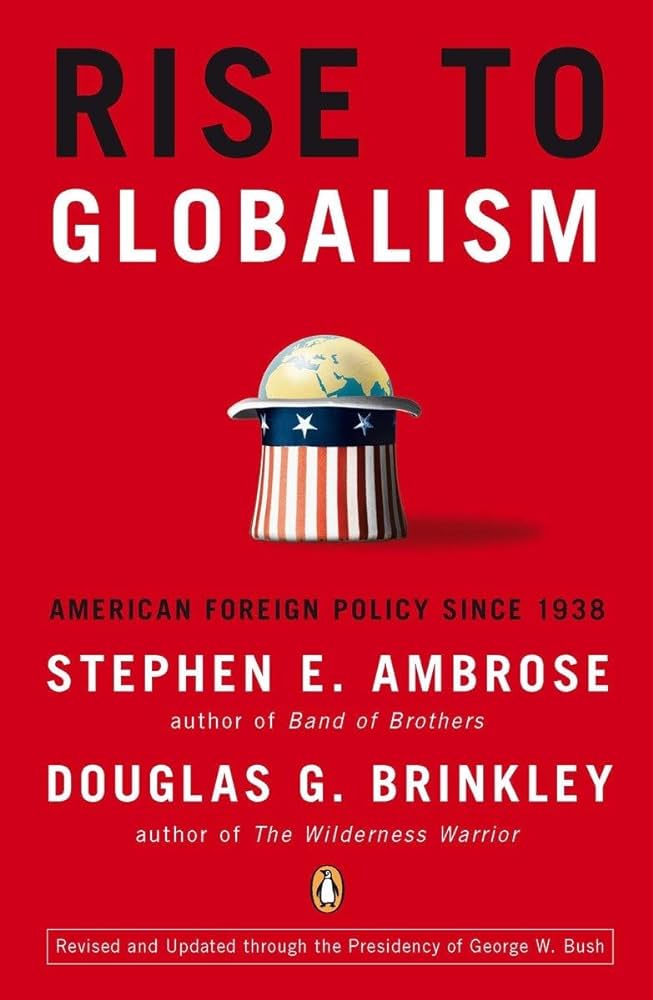
Stephen E. Ambrose and Douglas G. Brinkley are two of the most prolific authors in the United States. Together, or, separately, they have produced more than thirty books on World War II, the US presidency, American foreign policy and US creation of the United Nations.
In this book, which has sold hundreds of thousands of copies, both authors once again take the readers down the road of US foreign policy, but only up to the time of George Bush.
Unlike the works of Perry Anderson, it is not written with any radical overtone. Rather, it sought to explain the perils and dangers faced by the United States, especially over the Cuban Missile Crisis, Gulf War I, II, and the attacks of the September 11.
But “The Rise to Globalism,” is not a sure thing. The United States, like any country that is facing the backlash of automation and globalization, can and does recoil. The introduction of the Smoots-Hawley Act in the 1920s, where taxes were levied on more than 20,000 imported items, led to the Great Depression; even though it was meant as a policy move to help the farmers and workers in the United States.
The election of President Donald Trump, once again, is the clearest sign yet, that the US can and did become ‘isolationist’ at different historical intervals. Maybe the Trump administration will not retreat completely into the proverbial cave. Maybe Trump will be more aggressive than ever in perpetuating the dominion of the United States over the rest of the world. But by attempting to annul the Trans Pacific Partnership Agreement (TPPA) on the first day in office, the Trump administration has demonstrated the United States’ more nuanced take on what it means to be globally engaged. Come what may, the United States has gained amply from the world, just as the world has benefited handsomely from its role as an external balancer in the Asia Pacific. Both would need to find, and rediscover, their very convergence. And, often, this would have to be found, in and with, another behemoth: China.
